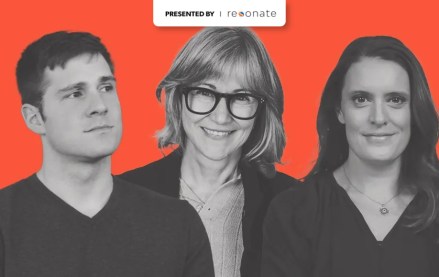
For all the complexity of the advertising technology system, these new tools are trying to solve a pretty simple problem: How publishers aggregate audiences and match those audiences with advertisers. Google’s making a hard run at being the platform of choice for publishers wanting to simplify how they do this.
As a step, Google said today it has begun the process of assimilating recently acquired yield manager Admeld into its DoubleClick publisher platform. The ultimate goal is to create a single product for publishers to manage their ad business, whether it’s sold directly or indirectly. It’s a compelling proposition for publishers confronting an array of technologies that solve single problems. Publishers should be in the business of creating great content, Google’s argument goes, rather than playing ad-tech integrator.
The catch — and there’s always a catch, right? — is that Google wants to play this role. It is curious that Google, the largest ad seller in the world, wants to play the role of arbiter for other ad sellers. Its technology will advise publishers where their ad inventory should go, including whether it should go to Google via the DoubleClick Exchange or its ad network. Should publishers really trust Google to do this?
It’s not that much of an issue, according to Neal Mohan, Google’s vp of display advertising. Publishers are less interested in those kinds of conspiracy theories — after all, Google would risk destroying a pretty big business if it was found to have its thumb on the scale — and more interested in the pressing issue of maximizing yield.
“When I sit down with publishers, that part of the conversation is dispensed pretty quickly,” Mohan said when asked if publishers should trust Google to play such a key role in their operations. “The question I get is, ‘what are you doing to help me generate more revenue.’ The way they are going to judge whether to work with Google is whether we make them more money.”
Obviously Google’s competitors disagree. The Rubicon Project and MediaOcean for two have long beat the drum that Google isn’t a neutral party. And there is some wariness of Google on the publisher side, Mohan’s experience notwithstanding. Digiday recently ran a “confession” with an ad operations manager at a top publisher. His take: “Let’s be honest here, Google isn’t shocked or disturbed that the ‘digital ad system’ is complex. They are shocked that other companies have the nerve to play in that same space and not cooperate with Google’s platform.”
Publishers are gaining in sophistication, Mohan said. There’s no longer the thought that as much as possible should be sold through a sales force and the rest is disposed of on a catch-as-catch gain basis through networks and exchanges. Just as a publisher has to think more broadly about its content distribution strategy with desktop, mobile and tablet, it should do the same with its advertising, he suggested.
“At the end of the day, the publisher is thinking of yield,” he said. “It’s not just advertising yield. The New York Times is yield managing by subscription. Publishers do have to think about yield.”
More in Media

Digiday+ Research: Publishers take their focus off events as revenue dips
The percentage of publishers making money from events hit a low as of the first quarter of this year and, as a result, fewer publishers plan on putting a focus on growing that part of their business.

What platforms, brands and agencies hope to get out of the Possible conference in year 2
Year two of Possible is once again being held in Miami Beach, and it will take place from April 15-17 with 3,000 attendees expected to listen to another 200 or so speakers, including Snap’s Colleen DeCourcy, Uber Ads’ Megan Ramm and UM Worldwide’s Matthew Smith.

AI Briefing: Cloud giants’ AI ambitions create new partnerships — and new competitive concerns
Last week, tech companies like Google, Microsoft and Amazon all announced updates more updates for their cloud and AI efforts





